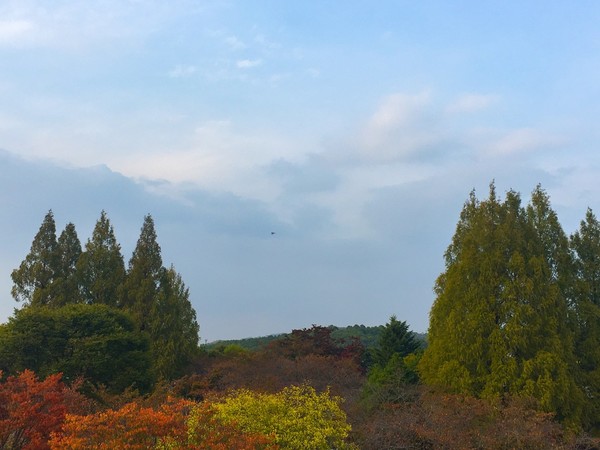Dear Reader,
The October chill is upon us once again. Although the changing of seasons is a yearly occurrence, I am always surprised when the leaves start falling and the days grow shorter and colder. It’s a startling reminder of the imminent end to a year that has been full of unrealized potential and promise.

2020 has been especially hard. Faced with unprecedented challenges, we have talked about the impacts of the pandemic and made continuously changing predictions about when things might return to normal. This year has tested and shaped our resilience; we adapt despite the uncertainties that we face every day. We continue to work and study and do our best to be productive, all in the name of trying to maintain some semblance of normalcy in our daily lives.
However, living as if everything is normal has its pitfalls. It took ten months for me to realize how burnt out I’ve become from this dumpster fire of a year. The pressure of staying productive with everything else going on in the world is immense. The small, everyday problems closer to home, such as the issues with KAIST WiFi and the lack of international student welfare that are discussed in this month’s Editorial-Opinion section, as well as the larger societal issues and crises that we face — like the protests around the world discussed in Feature — remind me that everything is not normal and not okay. Yet, here I am, forced by a never-ending stream of deadlines to stay busy and to stay productive — life as normal.
Burying my stress and emotions under work and productivity has turned into an unhealthy coping mechanism. I am guilty of using my deadlines and responsibilities as an escape from the realities of a world with COVID. Since the beginning of this year, my days have been marked by deadlines and research work and tasks to be completed. Being a student in the era of online classes has also been especially taxing, as the physical boundaries between work and rest blur together. I have been pushing myself to be productive and to do everything perfectly — and honestly, it has been exhausting.
Even before COVID turned the world upside down, students have been encouraged to be productive, often to the point of mental and physical exhaustion. We are taught to achieve our goals by pushing ourselves just a little bit more each time, believing that the practice of overloading ourselves with stress will somehow prepare us for what real life holds in store. Our definition of productivity has been twisted into a standard of sleeping less, drinking more coffee, and finishing more tasks. We are encouraged to fill every empty moment with something — anything to prove that we are not just “wasting time” — even when it might not match what is truly meaningful to us.
Our life should not revolve solely around studies and work. This is not to suggest that we should just stop and wallow in the misfortunes that we’ve had throughout the year; it is a proposition to permit ourselves to take the time to reflect on what is actually important to us. I, for one, have promised myself to leave fewer messages from family and friends unread and to stop feeling guilty when I choose to take long bike rides instead of forcing myself to study. I feel as though I’ve been waiting and holding my breath for the past ten months; for the last two, I hope I can remember to breathe and to just let the days go by without burdening them with great expectations.
This is also a reminder to you, Reader, to take a break when you need it. Although we are trying to adapt to a “new normal”, we should not forget that this year is difficult and confusing. We are allowed to feel lost and overwhelmed, and to acknowledge those feelings instead of just carrying on with our routines. Define for yourself a better interpretation of productivity, one that allows you to enjoy the colors of fall.
Sincerely yours,
Jaymee Palma
Editor-in-Chief

